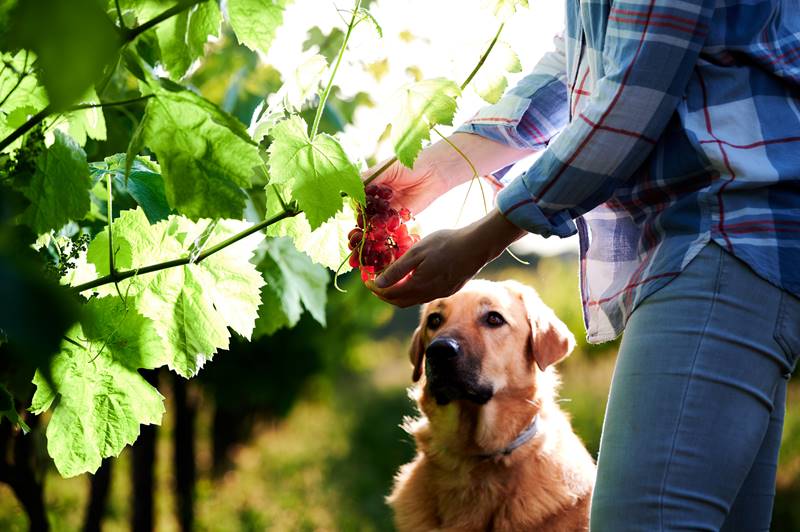Dogs Beat Humans in Vineyard Pest Detection
Pilot project in California explores dogs' role in detecting invasive insects and diseases
2025-01-15

A recent study has reinforced the potential for trained dogs to become key allies for winegrowers in the early detection of pests and diseases affecting vineyards. Researchers from Cornell University in the United States published a paper in late December demonstrating the ability of dogs to identify egg masses of the spotted lanternfly, an invasive insect posing a serious threat to grapevines.
The study involved two dogs, Dia, a Labrador Retriever, and Fagan, a Belgian Malinois. Both dogs were able to detect egg masses 3.4 times more effectively than humans in wooded areas near vineyards in Pennsylvania and New Jersey. According to the researchers, forests are common hiding places for this pest during the winter. However, in vineyard areas themselves, human searchers were more effective, as they were able to systematically inspect rows of grapevines, while the dogs excelled in more complex natural environments due to their superior sense of smell.
The publication of these findings in the scientific journal Ecosphere highlights the severity of the threat posed by the spotted lanternfly. Angela Fuller, a professor at Cornell's College of Agriculture and Life Sciences, warned that an infestation of this pest in a vineyard could destroy up to 100% of the vines in a single growing season.
Beyond this particular pest, other studies have shown that dogs can also help identify common vineyard diseases. One study, published in the Journal of Veterinary Behavior, revealed that dogs can recognize the distinctive scent of powdery mildew, a fungal disease that affects vineyards worldwide. Currently, there are no fast and cost-effective methods to detect this disease on a large scale, making the use of trained dogs a potentially viable solution for producers.
In California, a pilot project has explored whether dogs could also detect grapevine leafroll-associated virus 3 and mealybugs, both of which pose significant threats to vineyards. According to the specialized publication Wine Business, the trial involved several trained dogs, including Malbec, a black Labrador, Sauvi B, an English Springer Spaniel, Cab, a German Shorthaired Pointer, and Zinny, another English Springer Spaniel. The results were presented by Stephanie Bolton, director of research and education at the Lodi Winegrape Commission, during the Sustainable Ag Expo in San Luis Obispo.
These studies indicate that dogs have significant potential to help winegrowers combat pests and diseases proactively. However, researchers emphasize the need for further investigation to optimize the use of these animals in vineyards and establish protocols for large-scale implementation.
Founded in 2007, Vinetur® is a registered trademark of VGSC S.L. with a long history in the wine industry.
VGSC, S.L. with VAT number B70255591 is a spanish company legally registered in the Commercial Register of the city of Santiago de Compostela, with registration number: Bulletin 181, Reference 356049 in Volume 13, Page 107, Section 6, Sheet 45028, Entry 2.
Email: [email protected]
Headquarters and offices located in Vilagarcia de Arousa, Spain.